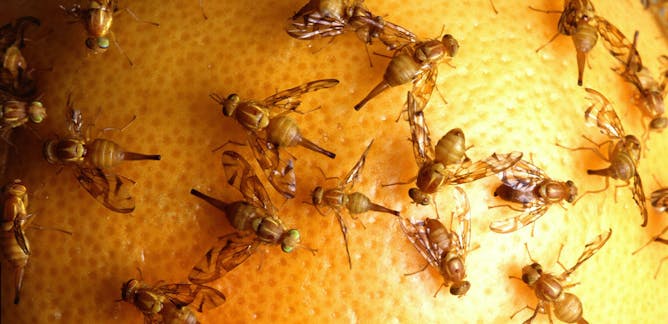|
Late last year, as COVID vaccines were getting ticks of approval and rolling off production lines, the world began to breathe a sigh of relief. But then new and concerning genetic variants of the coronavirus began to emerge. Some have the potential to sidestep our vaccine defences. And the more the virus circulates and replicates in countries with significant exposure, the more likely it is that even more mutants will arise. That’s why the Lancet Covid Commission Taskforce on Public Health - a high-level international expert group - has issued a stark warning against complacency. They argue that new variants have changed the game, meaning we can no longer win the upper hand with vaccination
alone.
Myanmar has been a military dictatorship on and off – but mostly on – since the 1960s. But the army “wasn’t always a repressive force,” writes Tharaphi Than in this brief history, which explains how Myanmar’s generals got so powerful – and so brutal. The generals who took power over Myanmar in a coup earlier this year keep killing in their ruthless campaign to crush a popular uprising against military rule. Over 500 people have been
killed in the Southeast Asian country since the Feb. 1 coup, including 40 children.
|

Daniel Cole/AP
Susan Michie, UCL; Chris Bullen, University of Auckland; Jeffrey V Lazarus, Barcelona Institute for Global Health (ISGlobal); John N. Lavis, McMaster University; John Thwaites, Monash University; Liam Smith, Monash University; Salim Abdool Karim, Centre for the AIDS Program of Research in South Africa (CAPRISA); Yanis Ben Amor, Columbia University
COVID-19 variants of concern have changed the game. We need to recognise and act on this to avoid future waves of infections, yet more lockdowns and restrictions, and avoidable illness and death.
|

Every March 27, the Myanmar military celebrates its anniversary with a parade. The day of the 2021 parade, soldiers killed at least 90 pro-democracy protesters.
Xinhua/Zhang Dongqiang via Getty Images
Tharaphi Than, Northern Illinois University
What began in the 1940s as a revolutionary army created to liberate Myanmar from British colonial rule soon turned repressive. The country has been a military dictatorship on and off since 1962.
|
Energy + Environment
|

Jordy Lee, Colorado School of Mines; Morgan Bazilian, Colorado School of Mines
Right now, the nation is almost entirely dependent on other countries for minerals that are used in everything from wind turbines to strike fighters and satellites.
| |

Alexandra Schnell, University of Cambridge
Colour-changing patterns in snoozing octopuses are characteristic of two alternating sleep states.
|
|
|
Politics + Society
|

W. Joseph Campbell, American University School of Communication
The New York Times gave in to White House pressure and did not publish crucial information about an impending US-backed invasion of Cuba. It's an old story, much repeated – but it's wrong.
| |

Randi Mandelbaum, Rutgers University
Children and families have been fleeing to the US in rising numbers for nearly a decade. So why is the current situation at the US-Mexico border being viewed as something new?
|
|
|
En Français
|

Camille Bernery, Université Paris-Saclay; Boris Leroy, Muséum national d’histoire naturelle (MNHN); Christophe Diagne, Université Paris-Saclay; Franck Courchamp, Université Paris-Saclay
Les invasions biologiques sont une menace importante pour la biodiversité, mais elles coûtent aussi très cher à nos sociétés. Une étude estime ce coût à plus de 1000 milliards de dollars depuis 1970.
| |

Joël Fabrice Djaha, Université Félix Houphouët-Boigny. Cocody, Côte-d'Ivoire; Anne Bekelynck, Institut de recherche pour le développement (IRD)
Une étude poussée des contenus postés sur Facebook en Côte d’Ivoire depuis le début de la pandémie montre que la défiance envers le pouvoir provoque souvent un rejet des mesures sanitaires.
|
|
|